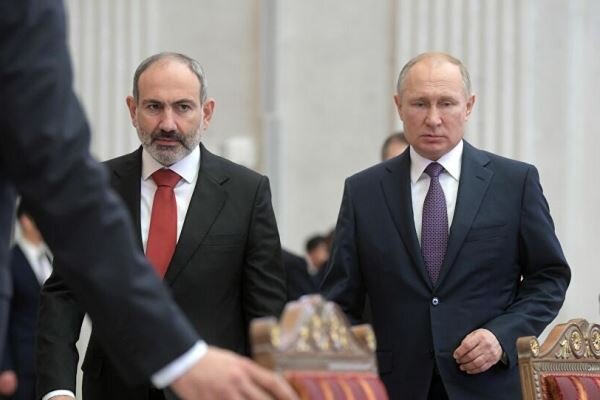Nikol Pashinyan, who after the signing of the painful post-Karabakh war peace deal in 2020 went through a critical period of popular protests and was able to win the majority vote with the resignation and dissolution of the government, actually gained valuable experiences. The pro-Western Armenian diplomat has always been criticized by Russia and the Russian media. Russia, meanwhile, sees the former Soviet republics as “near abroad” and is unwilling to lose another country in the region after the loss of Georgia and unwilling to see Westernization of the modernist ideas of the leaders of the Soviet republics, by giving the green light to the Republic of Azerbaijan to reclaim part of the occupied geography of Karabakh, tried to punish the Pashinyan; but Turkey’s logistical support for Baku in the Karabakh war in 2020 paved the way for the rapid advance of the Republic of Azerbaijan, and the Armenian army was on the verge of a complete defeat, forcing Russia into the conflict and inviting the two sides to the negotiating table and signing a ceasefire.
On the other hand, after lack of support of the then US President Donald Trump and because he saw the whole occupied territories of Karabakh on the verge of losing, Pashinyan in a clear retreat from his political positions, resorted to Moscow in order to put an end to the conflict for the time being so that the Armenia in 2021, with a change in its approach and a historical turn towards Russia, continue to accept Pashinyan as its Prime Minister. The Karabakh war in 2020 and lack of serious US support for Armenia, as well as Russia becoming the savior in order not to lose much of the occupied territories of Karabakh, created a bitter experience for the Yerevan administration that it could not trust the West and should not do anything to offend sovereignty of Russia. During the Karabakh war and in the aftermath of the continued defeats of the Armenian army, there were reports of Pashinyan contacts with Moscow, and it was even claimed that Pashinyan had agreed with the establishment of a Russian military base in Armenia. It was in this context that Armenian Defense Minister Vagharshak Harutyunyan stated in an interview with the Russian news agency RIA Novosti on March 25, 1999 that Yerevan was interested in expanding and increasing the potential of Russia’s 102 military base in the Gyumri region of Armenia. Pashinyan correctly understood that few governments could survive the humiliation imposed by the post-Karabakh ceasefire in 2020 and the protests and the rise of social sentiment, but the Armenian politician was able to stay in power by turning to Russia in a timely manner.
But given the consequences of what has happened in the South Caucasus over the past few months, several scenarios for the future of Armenia and South Caucasus can be envisioned. The general frustration of the Armenians with the heavy defeat from the Republic of Azerbaijan has remained like a bone in the throat of Armenia, and given the change in the Armenian government’s attitude towards Moscow, it is possible that Yerevan will once again long for the recapture of the liberated Karabakh territories to gain national confidence. Russia should be able to maintain its greater sovereignty over the Soviet-independent republic by maintaining ethnic-border tensions, according to the “frozen conflict” theory. On the other hand, another reason that increases the likelihood of war is the greater geographical siege of Armenia due to the implementation of the post-Karabakh ceasefire provisions of 2020. Turkey, which previously had to either pass through Iran or resort to Armenia to reach the Republic of Azerbaijan, cleverly managed to include the clause in the ceasefire provisions to create a buffer corridor near the Iranian-Armenian border under Russian supervision, and Ankara easily through Nakhchivan and the corridor reaches Baku and from there to the port of Aktau in Kazakhstan and then to Beijing, and after this achievement, Turkey becomes the transit hub of the new Silk Road project and the Caspian energy hub to Europe. This puts the transit and trade of Iran with Armenia under the control of Russia and Turkey, and perhaps the only safe border and airway for Armenia will be brought under microscope.
Finally, it should be noted that the next government of Armenia will have a different worldview than before. Pashinyan will work harder to strengthen the Eurasian Economic Union than to join the European Union. In the next government, Yerevan will strengthen its view of the East and try to play a more prominent role in Russia’s puzzle in the “new world order of the East” that is being formed with China’s economic and Russia’s military leadership.










0 Comments